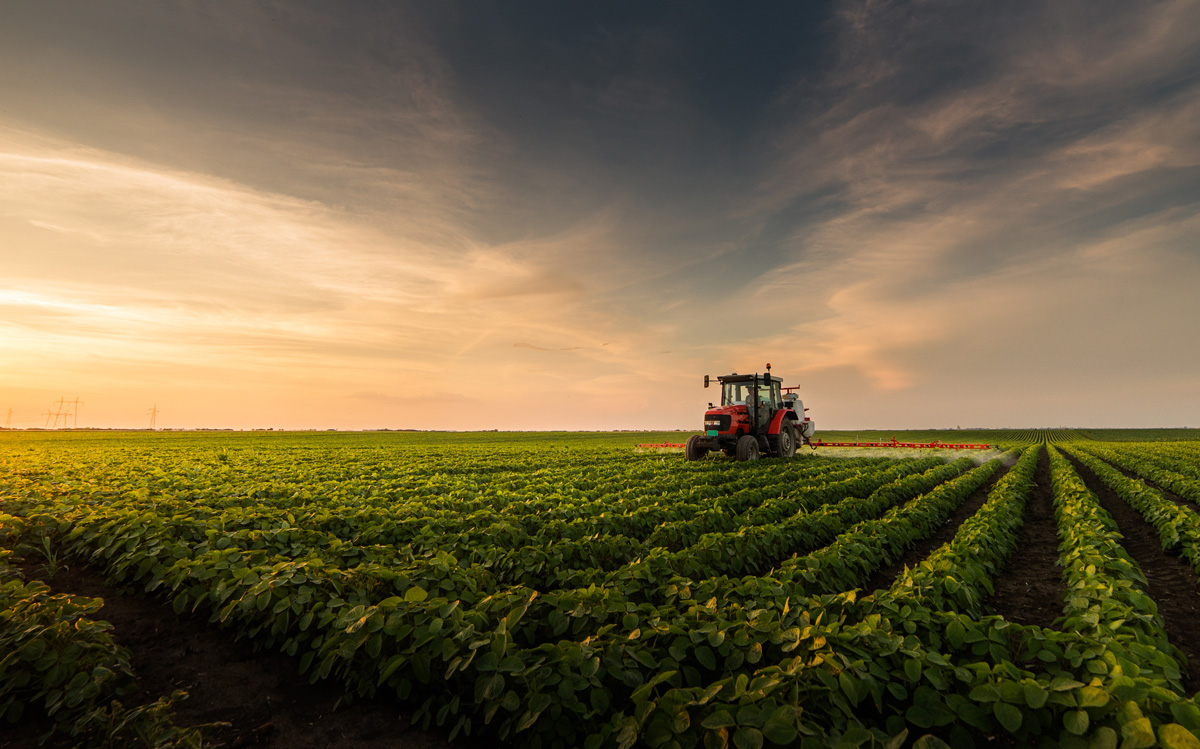Climate Change Worsens Agriculture’s Environmental Impacts
| |

Climate change is one of the most urgent global challenges of our time. Its impacts and consequences are wide and profound, affecting the primary sectors of society, including agriculture, energy, transportation, health, coastal communities, tourism, and economic development.
As the global population continues to increase, the demand for essential resources such as food, clothing, and shelter also rises. This demand for more food, feed, fiber, and fuel is expected to escalate the environmental impacts of agriculture. Climate change, while less studied in this regard, is considered a second amplifier of the environmental impacts of agriculture. As the climate shifts, it threatens agricultural productivity and disrupts the stable conditions that modern agriculture has long relied upon.
A sweeping global research review recently published in Science co-written by professors at the University of Minnesota (UM) with more than 20 experts worldwide examined the links between climate and agriculture. The review explores how climate change can amplify agricultural environmental impacts, including greenhouse gas (GHG) emissions, water consumption, soil degradation, nutrient pollution, pest problems, and biodiversity loss. The review also discusses potential solutions to address these challenges and ensure sustainable agricultural practices.
Two major findings
The researchers present two major findings from their study. First, climate change will likely exacerbate agricultural production's already large environmental impacts. It would do so by directly and negatively affecting agricultural productivity; reducing the efficacy of agrochemicals and increasing their loss to the environment; and increasing crop pests and soil erosion.
Second, agriculture accounts for almost a quarter of global GHG emissions, and its response to climate change could create a powerful positive GHG feedback loop through multiple pathways.
Other remarkable findings of the study
Aside from the review’s two major findings, the researchers also found:
- Climate change has broad-ranging impacts on agricultural practices, increasing water use and scarcity, nitrous oxide and methane emissions, soil degradation, nitrogen and phosphorus pollution, pest pressure, pesticide pollution, and biodiversity loss.
- Climate-agriculture feedback pathways could dramatically increase agricultural greenhouse gas emissions. Without changes in agriculture, this feedback loop could make it impossible to achieve the Paris Agreement goal of limiting global warming to 1.5 degrees Celsius to 2 degrees Celsius.
- Existing sustainable agricultural practices and technologies, if they are implemented on a wide scale, can greatly reduce agricultural emissions and prevent a feedback loop from developing. To achieve this, governments must work to remove socioeconomic barriers and make climate-resilient solutions accessible to farmers and food producers.
From these findings, the team identified several next steps. First, stakeholders should accelerate the adaptation and cost-reduction of efficient and climate-friendly agriculture. Precision farming, perennial crop integration, agrivoltaics, nitrogen fixation, and novel genome editing are among the emerging techniques that could increase production and efficiency in agriculture while reducing climate change impacts. They also recommend conducting further research on climate-agriculture feedback pathways and new technologies such as on-farm robots.
Reducing agriculture’s environmental harm
Co-author David Tilman, a professor at the UM’s College of Biological Sciences said, “We need agriculture, but the future of humanity also requires that we reduce agriculture’s environmental harms.” He added that 50 years ago the impacts of agriculture were trivial, but today they are not. Tilman said that in their evaluation of new practices being tried around the world — in the U.S., Mexico, the European Union, and China — they have identified practices that increase harvests while decreasing environmental harm. Once these new practices are tested and verified, a farm bill that pays farmers both for producing food and for improving the environment is needed. “Farmers are the stewards of 40% of the land on Earth. Enabling better stewardship has tremendous benefits for all of us.”
Zhenong Jin, co-author and associate professor at the UM College of Food, Agricultural and Natural Resource Sciences, said that legislation could provide resources to help farms become more efficient. He said that they looked at all aspects of the relationship between agriculture and climate to determine where new practices are the most effective. “While carbon sequestration is currently a priority, an integrated approach that factors in farming efficiency and pollutants like nitrous oxide could deliver much larger climate benefits and a more stable future for agriculture. Practices such as precision fertilizer use and crop rotation can prevent a feedback loop from developing.”
Future outlook
Sustainable agriculture is crucial for both human and planetary health. Climate change demands faster adoption of practices and technologies that help improve agriculture's environmental sustainability and climate resilience. These solutions, such as diversification and integrated soil management, should offer multiple benefits. However, socioeconomic barriers hinder the adoption of these practices. A better understanding of these barriers and innovative policies to overcome them is needed. Investing in agricultural technologies and exploring new foods and diets can make agriculture more reliable, sustainable, and climate-resilient. These changes could reduce land, water, and chemical use per person.
For Further Reading:
- Global Study Identifies Practices for Climate-Resilient Agriculture
- Study Reveals Linkages Between Crop Biotech and Climate Change Mitigation
- How CRISPR Helps Mitigate the Effects of Climate Change
- Study Reveals How Climate Change Alters Plant Growth
- Pocket K No. 43: Biotechnology and Climate Change
| Newer Post | Archive | Older Post |
Science Speaks is ISAAA Inc.'s official blog. Weekly blog articles, authored by ISAAA writers, partners, and invited contributors, aim to help share, disseminate, and promote scientific knowledge and its vital role in achieving global agricultural sustainability and development. Your support to Science Speaks will help us achieve this goal. You can help us by donating as little as $10.

